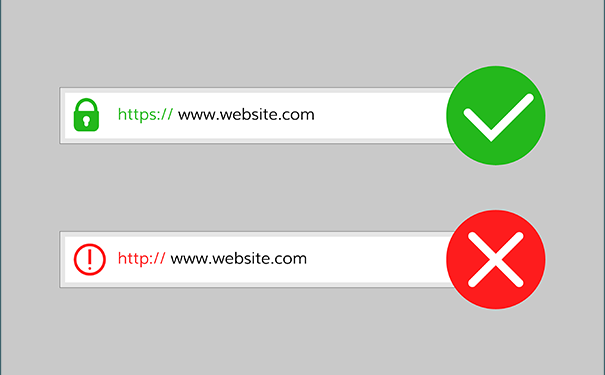How To Tell If a Website Is Secure? – Is this Website Safe?
Technological Advancements over the twentieth-century fuel a growing dependency and reliance on the Internet that shows no signs of slowing— and with this enhanced sophistication of technology, Website Security is an intensifying concern. Inadequate safety measures present the real potential for the misuse of personal information and consumer data, and effective safeguarding has drawn greater attention since the EU's implementation of the General Data Protection Regulation (GDPR) in May 2018.
Internet purchases are limitless; there are little these days that you cannot buy online, and few sectors that do not make their products and services available to you electronically. From the comfort of your mobile device, you can order your weekly groceries, secure next year's holiday destination, sell your home, book a wedding venue, or organize your finances through online banking. The Internet, without question, makes it easier for us to conduct business or quickly communicate.
The continuous development of website and application security reassures consumers that most shopping sites are safe and that their personal information will not be compromised, however, without sufficient protection, some websites leave themselves vulnerable to attacks, resulting in site-hacking that presents an opportunity for cyberattackers to target consumer data that can include bank details and social security information. A successful hack can take a site or computer down in its entirety, infected it via scripts that will install malware to your PC, or use your account to fraudulently send emails that entice readers to share their Personal Information that might include passwords and banking details.

Hackers are persistent, their attacks are often automated, recurrent, indiscriminate, and target all devices imaginable. A hacked site has the potential to cause irreparable damage to a business, and its consumers. The rebuilding of a reputation due to a significant loss of trust is often a lengthy process that is both resource heavy and financially draining.
A website is not secure if:
-
The URL is improperly formatted
The URL of a trusted website that requires your personal information will begin with "https://." HTTP refers to the foundation of how information is transmitted on the Internet, and almost all websites use it. -
It fails to have a privacy policy
Be wary of websites that do not display a privacy policy. Without one, they will not be able to honor the security of your information. A lack of privacy policy could indicate that you are using a fake website. If you fall victim to a bogus website, ensure that you move to a genuine one. -
It has an expired SSL certification
A website possessing an expired SSL certification means that the website including any information you input is susceptible to attack. -
It does not have a badge verification
All secure websites will have a "Secure and Verified" badge at the bottom. Click on the badge for more information. This information should match up with the website that you're using. If it doesn't, you could be using a malicious web page. -
It does not have a 'lock' icon
The lock icon is included on most secure websites. This icon can be found on the URL address bar at the top of your browser, usually to the left of the URL. Fake websites may not have a lock icon, or they could create a fake one. Click on the lock icon to check for additional information about the website.
Comodo cWatch supports you in ensuring website safety by providing you with the use of our free website scanner tool. Our scanner can determine if a website contains malicious codes that can directly impact the visitor. It scans in seconds and provides you with an immediate report on the security status of any website.
Did you know that your owned website can be the culprit of your computer hack? Use our website scanner tool to check its safety.





